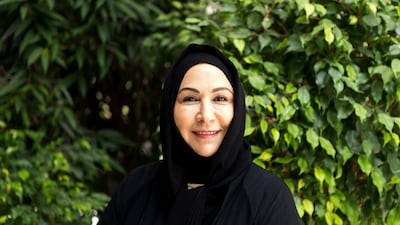Small and medium-sized enterprises (SMEs) in the UAE's food and beverage sector are vying for 20 per cent of the Dh2 billion in revenue expected to be generated by Expo 2020.
“I want a big slice of the Expo; it is very important because it will open doors for a lot of new and young businesses to go into the Mena region and even the West,” said Love Mansukhani, managing director of Ribbon, which set up five years ago and has four outlets operating in Dubai with more concepts in the pipeline. “We want to use the Expo platform to get our brands into the GCC and beyond. That’s the best form of advertising.”
F&B operators are currently facing challenging market conditions in the wake of lower oil prices, down 15 per cent year-to-date, that have led to a wave of redundancies and had a negative impact on consumer sentiment.
At a BusinessConnect session, hosted in Dubai yesterday by Expo 2020, F&B operators spoke of their hope of being able to showcase their brands at the global event – which plans to have tenders in the market before the end of the year. Expo organisers estimate visitors will generate about Dh2bn in F&B sales – with 20 per cent of direct and indirect spend awarded to SMEs.
Some participants referred to the exposition as a "light at the end of the tunnel" for an industry looking to rebound from large operational overheads in the form of high rents, as well as labour and delivery costs.
“A lot of good operators are struggling with their bottom line because everything goes on really high expenses," he said. "For any business where the margins are low, scalability is crucial.”
Scale is an issue the six-month Expo, which starts in October 2020, hopes to offer local brands. At peak, up to 85,000 meals will be served per hour across 30,000 square metres of front-of-house space for F&B. A further 5 million meals will be needed to feed the Expo workforce.
“From the home-grown kitchen producer to fine dining, we are looking for a full spectrum of delivery," said Gillian Hamburger, senior vice president, commercial at Expo 2020 Dubai. "With more than 180 nations participating, 25 million visitors and 70 per cent of those coming internationally, we need to make sure we cater to all ethnic types and price points.”
Although Expo organisers are encouraging businesses to scale up ahead of the event to help propel their brands, they insist operators must build a sustainable model.
“We view ourselves as a platform or an enabler; it won’t do anyone any good if they have a fantastic six-month run and then the doors close and that’s the end of the business,” said Ms Hamburger. The event’s business model for F&B participants will be commission based with a minimum guarantee, she added.
Organisers have stressed that Expo F&B opportunities are open to big and small entities.
This was welcomed by Najah Hussain Al Muntafiq, the Emirati founder of Cocoa Jalila, a local producer of fine chocolate, which supplies Etihad Airways, Jumeirah Hotels, Emirates airline and Address Hotels.
“It’s incredible to be part of that equation and it will put us on the global stage” said Ms Al Muntafiq. ” But while I can see the numbers now, I need to go back and quantify in terms of what I am going to get out of this. It’s very competitive and I’m not the only chocolate provider.”
Other F&B players are not convinced the Expo opportunity is a definitive payoff.
“My main concern is logistically how this will work,” said Stephane Jacques, the managing director of Living Brands, whose operations include Lemongrass Thai Restaurant. “They are talking about a 24-hour operation – that means a lot of staff requirements. There are very practical questions which need to be known for the operator to potentially tender and so far they still do not have a clear picture.”


